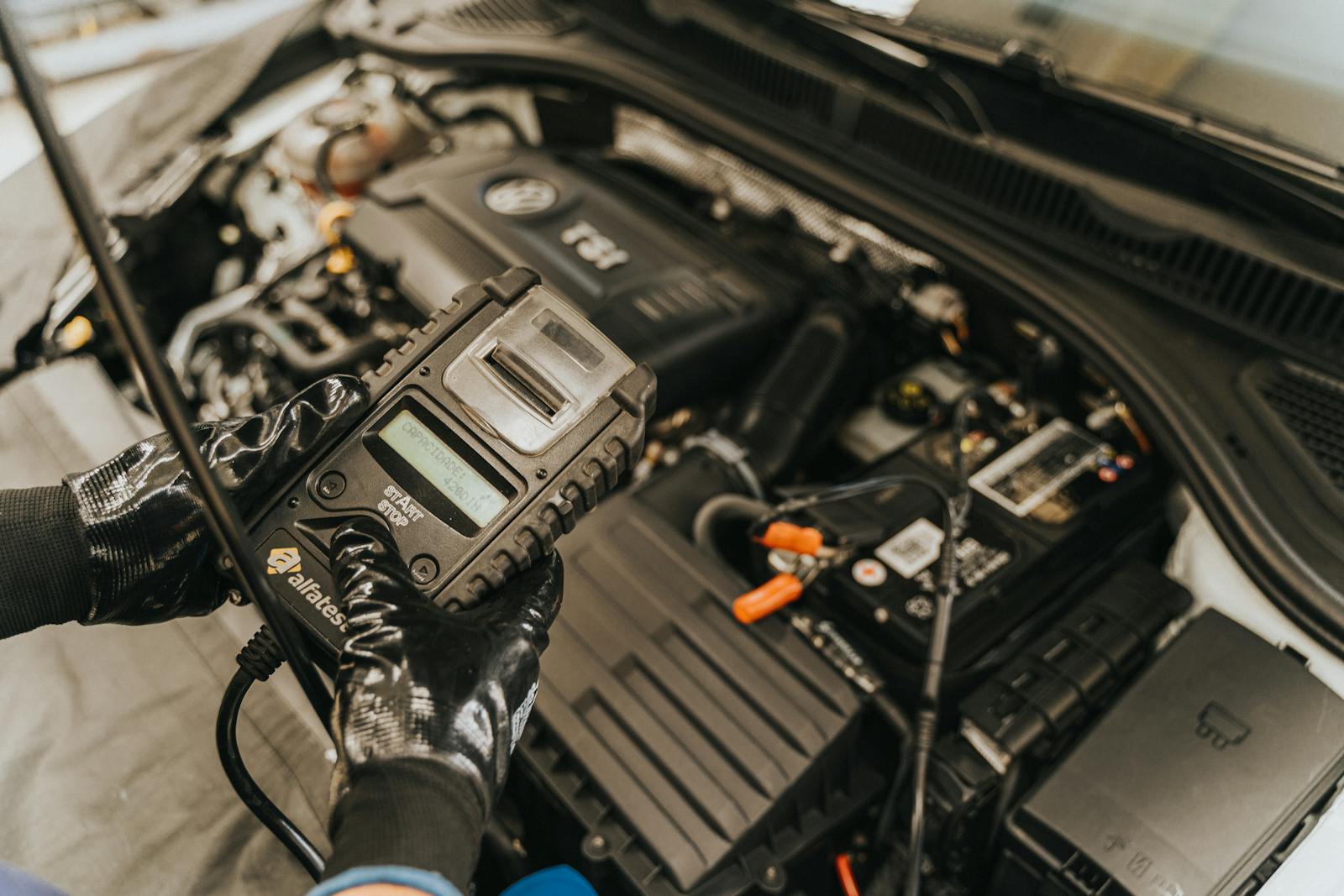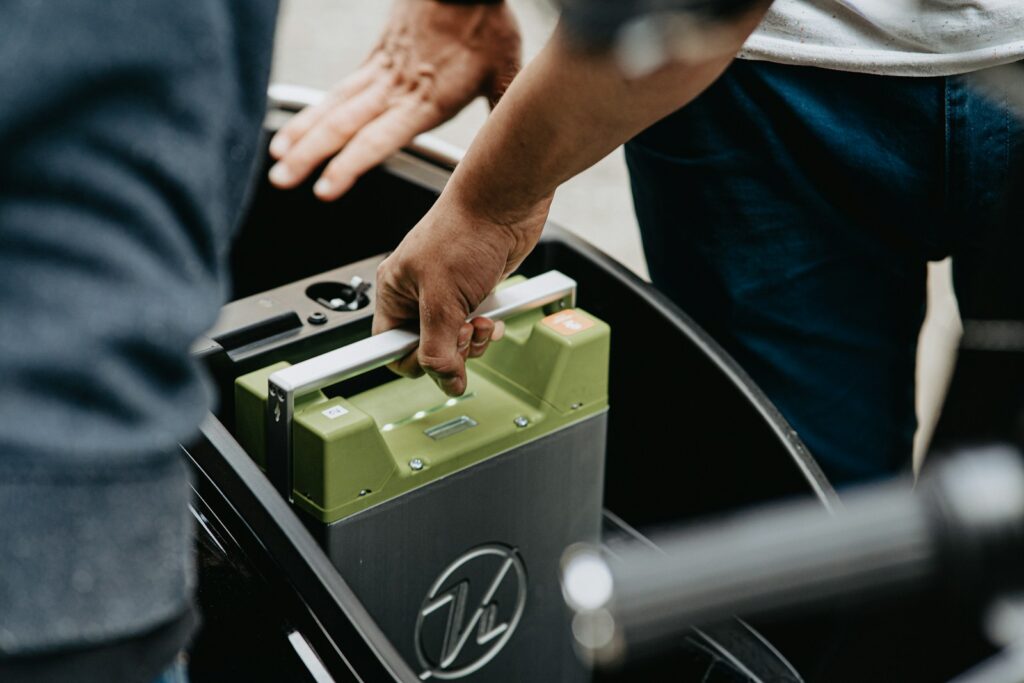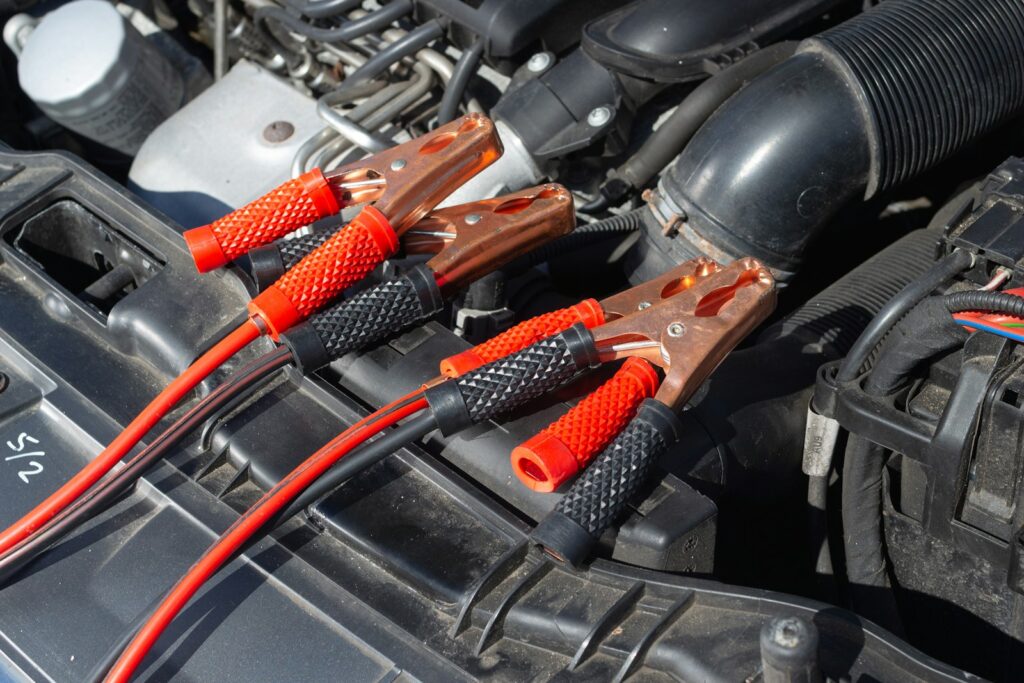Are you wondering, “How long do car batteries last?”
Your car battery is the unsung hero under the hood, quietly providing the power your vehicle needs to start up, run the electronics, and keep you moving smoothly on the road.
But like any component, car batteries don’t last forever. Many drivers often find themselves asking, “How long do car batteries last?” Understanding average car battery life, how to maintain it, and when to replace it can save you from the inconvenience of a dead battery and costly repairs.
This article will cover everything you need to know about car battery life, what factors influence it, how to maintain your battery, and how to recognize the warning signs of a failing battery. Plus, we’ll answer questions surrounding modern lithium-ion batteries and their role in electric vehicles (EVs).
What Is the Average Life of a Car Battery?
Car batteries typically last three to five years. However, the exact lifespan of your battery depends on several factors, including the type of battery, your driving habits, and the climate you live in.
- Traditional Lead-Acid Batteries (used in most gas-powered cars): Average life is 3-5 years.
- Lithium-Ion Batteries (used in electric vehicles): Can last 10+ years due to advanced technologies and reduced strain on the charging system.
Most auto manufacturers recommend replacing a car battery every four years, even if it seems to be working fine, to avoid unexpected failures. Always check your owner’s manual for specifics on your vehicle’s recommended battery replacement schedule.
Average Car Battery Life Explained Further
On average, a car battery will last between 3 to 5 years, depending on factors like driving habits, climate, and how much electricity your car’s devices use. If you’re someone who loves to blast the radio, charge multiple devices, or drive short distances often, your battery may wear out sooner than expected. That’s because it doesn’t get enough time to fully recharge between trips.
Just like scheduling regular oil changes, keeping tabs on your battery’s age and performance is an essential part of vehicle maintenance. For Toyota drivers and beyond, a proactive approach means you won’t have to respond to a dead battery at the worst possible time—or spend extra money on an emergency jumpstart. Pay attention to slow starts, dim lights, or frequent resets on your radio as signs it might be time to replace your battery.
Why a Quality Car Battery Is Important
A reliable and high-quality car battery is essential for the overall performance and longevity of your vehicle. Here are the key reasons why investing in a good car battery matters:
1. Consistent Engine Performance
A high-quality battery ensures your engine starts smoothly and consistently, even in extreme weather conditions. Cheap or aging batteries may struggle to provide enough power, leaving you stranded during critical moments.
2. Powering Essential Systems
Modern vehicles rely on electrical systems for various functionalities, such as lighting, air conditioning, infotainment, and power windows. A quality battery delivers the stable power necessary to keep these systems running efficiently.
3. Enhanced Durability
Premium car batteries are designed with durable components that withstand vibrations, temperature fluctuations, and regular wear and tear. This durability reduces the likelihood of unexpected failures and increases the overall lifespan of the battery.
4. Lower Maintenance Requirements
High-quality batteries often require less maintenance compared to basic models. Features like corrosion-resistant terminals and sealed designs minimize the need for frequent cleaning, saving you time and effort.
5. Improved Fuel Efficiency
An efficient battery can reduce strain on the alternator, which in turn can enhance your vehicle’s fuel efficiency. A struggling battery forces the alternator to work harder, leading to increased fuel consumption over time.
By choosing a quality car battery, you’re not only ensuring reliable performance but also protecting your vehicle from unnecessary repairs and inconvenience. It’s a small investment with big returns for your driving experience.
Factors That Influence Car Battery Life
Understanding the key factors that impact car battery life can help you make adjustments to enhance its longevity:
1. Climate
- Hot Weather: Heat speeds up chemical reactions inside the battery, which can reduce battery life by causing the internal components to wear out faster. Drivers in hot climates should be particularly cautious.
- Cold Weather: Batteries lose their ability to deliver enough power during colder months, primarily because cold cranking amps (CCA) are put to the test to start the engine in cold temperatures. This is why winter often leaves drivers stranded with a dead battery.
2. Driving Habits
Routine short trips or leaving your car unused for extended periods can drain the battery. This happens because the alternator, which recharges the battery, doesn’t have enough time to replenish it if you’re only driving short distances. Similarly, modern cars with advanced electronics and features, such as key fobs, door locks, and GPS systems, create an added power demand, even when the car is off.
3. Battery Maintenance
Routine maintenance can significantly extend the life of your battery. Corrosion on the battery terminals and an improperly secured battery can lead to decreased performance and early failure. Always inspect for signs of damage or wear and clean terminals as needed.
How to Maintain Your Car Battery for Longer Life
To keep your vehicle running smoothly, incorporate these battery maintenance tips into your routine:
1. Inspect and Clean Regularly
Check the engine compartment for corrosion or buildup around the battery terminals. Use a baking soda and water mixture to clean corrosion carefully, ensuring the terminals are dry before reconnecting.
2. Drive Longer Distances
Frequent short trips drain the battery without giving the alternator enough time to recharge it. Taking regular longer trips will help keep your battery charged and healthy.
3. Check Your Charging System
A malfunctioning alternator can reduce battery life by not providing enough power or overcharging. Consider having your charging system inspected as part of routine maintenance to ensure everything operates efficiently.
4. Protect Against Extreme Temperatures
If you live in a hot climate, park your car in the shade or a garage to avoid overheating the battery. Similarly, consider using a battery insulation kit in colder regions to protect it.
5. Test the Battery Voltage
Modern cars include diagnostic features, or you can use a voltmeter to ensure your battery voltage stays within a healthy range (around 12.6 volts for a fully charged lead-acid battery).
What Are Cold Cranking Amps (CCA) and Why Do They Matter?
When it comes to choosing the right battery for your car, one of the most important specs to consider is Cold Cranking Amps (CCA). This number tells you how well a battery can start your engine in cold temperatures. The higher the CCA, the better it performs when the weather drops—especially critical for those chilly winter mornings when your car needs extra power to fire up.
If you drive in colder climates or rely on your vehicle early in the morning, a battery with a higher CCA rating can make all the difference. It ensures your engine starts reliably, helps protect your alternator, and avoids unnecessary wear on your starter system. When in doubt, check your vehicle manual or ask a trusted technician to recommend the right CCA for your make and model.
How to Jump Start a Car: A Step-by-Step Guide
Dead battery? Don’t panic—jump starting your car is easier than it sounds. Here’s how to do it safely:
- Park another car with a working battery close by, but not touching.
- Turn off both vehicles and locate the batteries.
- Connect jumper cables in this order:
- Red clamp to the dead battery’s positive terminal (+)
- Red clamp to the working battery’s positive terminal (+)
- Black clamp to the working battery’s negative terminal (–)
- Black clamp to an unpainted metal surface on the dead car (not the battery)
- Red clamp to the dead battery’s positive terminal (+)
- Red clamp to the working battery’s positive terminal (+)
- Black clamp to the working battery’s negative terminal (–)
- Black clamp to an unpainted metal surface on the dead car (not the battery)
- Start the working vehicle and let it run for a few minutes.
- Try starting the dead car. If it starts, keep it running and disconnect the cables in reverse order.
Let the jumped car run for at least 15–20 minutes or drive around to recharge the battery. If the car won’t start after a few tries, the battery may need to be replaced.
Signs Your Car Battery Needs Replacement
Nobody likes getting stranded with a dead battery, which is why it’s essential to recognize the warning signs of a battery nearing the end of its life:
- Slow Engine Start-Up: If your engine struggles or takes longer to start, it could mean your battery isn’t delivering enough power.
- Clicking Sounds During Ignition:** This indicates the starter doesn’t have enough power to engage.
- Dim Headlights/Interior Lights: A weak battery often fails to power the lights properly.
- Frequent Jump Starts: Needing frequent jump starts is one of the clearest signs your battery is dead or about to fail.
- Swollen Battery Case: Extreme heat or freezing temperatures can cause the battery case to swell or crack, meaning replacement is overdue.
Always test your battery if you notice these signs. If in doubt, consult a trusted mechanic or auto shop.
Don’t Get Stranded: The Importance of Car Battery Maintenance
Your car’s battery is the heart of its electrical system—without it, your vehicle won’t start, your lights won’t shine, and your electronics won’t function. But many drivers overlook battery care until it’s too late. Regularly checking your battery’s charge, cleaning corrosion from terminals, and replacing it every 3–5 years can prevent inconvenient breakdowns. If your engine is slow to crank or your dashboard lights dim, those could be signs it’s time for a new battery.
While you’re keeping your car clean and shiny with regular washes, don’t forget to pop the hood and give your battery some love. It’s quick, easy, and could save you a call to roadside assistance down the road!
When and How to Replace Your Car Battery
It’s crucial to replace your battery promptly when it shows signs of failure. Here’s how to make the process hassle-free:
- Confirm It’s Time for Replacement | If your battery is over three years old and showing symptoms of reduced power, it’s time to replace it with a new battery.
- Choose the Right Battery | Check your owner’s manual or consult your auto manufacturer for information on the correct specs (e.g., cold cranking amps, dimensions, and warranty).
- Proper Installation | Have your replacement battery installed by a professional to ensure it’s securely mounted, connected properly, and tested.
Top Car Battery Brands In 2025
When it comes to choosing a reliable car battery, selecting a trusted brand is crucial. Below is a list of the seven top car battery brands, along with links to their official websites:
- Optima Batteries | Known for their advanced technology and durable designs, Optima Batteries are a favorite among car enthusiasts. Visit their website.
- DieHard | DieHard offers dependable and long-lasting batteries for various vehicle types, ensuring optimal performance. Visit their website.
- Odyssey Battery | Odyssey batteries are renowned for their high-performance capabilities and extended lifespan. Visit their website.
- Duracell Automotive | A trusted name in the battery industry, Duracell provides reliable automotive batteries for all needs. Visit their website.
- Interstate Batteries | Interstate Batteries are designed for consistent performance and durability, making them a trusted choice. Visit their website.
- ACDelco | ACDelco batteries deliver exceptional quality and are widely used in various vehicles. Visit their website.
- Bosch Automotive Batteries | Bosch offers innovative automotive batteries tailored to deliver premium performance and reliability. Visit their website.
These brands represent some of the most trusted names in the industry, ensuring you can find a battery built for longevity and efficiency.
What About Electric Vehicles?
Electric vehicles rely on lithium-ion batteries, which are much more advanced than traditional lead-acid batteries. These batteries:
- Last longer, averaging 8-10 years or 100,000-200,000 miles before replacement.
- They are sensitive to extreme temperatures, although modern EVs often come with thermal management systems to help protect their battery life.
To maintain the longevity of your EV battery, avoid charging it to 100% or letting it fully discharge regularly.
Bring your car to I Love My Car Car Wash for a wash after you get that new car battery, so the inside and outside can work just like new!

Wrapping Up and Keeping Your Car Powered
Efficiency and reliability are the foundation of any well-maintained car battery. Whether it’s navigating the complexities of cold weather, hot weather, or extended use, knowing how to care for your car battery ensures your car stays ready when you need it.
Key Takeaways: How Long Do Car Batteries Last?
Most car batteries last 3-5 years, but proper maintenance can extend their life.
- Climate, driving habits, and maintenance routines play a critical role in battery health.
- Watch for signs of a failing battery, such as slow start-ups or dim headlights.
If you’ve been waiting to inspect your battery, now’s the perfect time! A little maintenance goes a long way toward ensuring your vehicle runs at peak performance.






